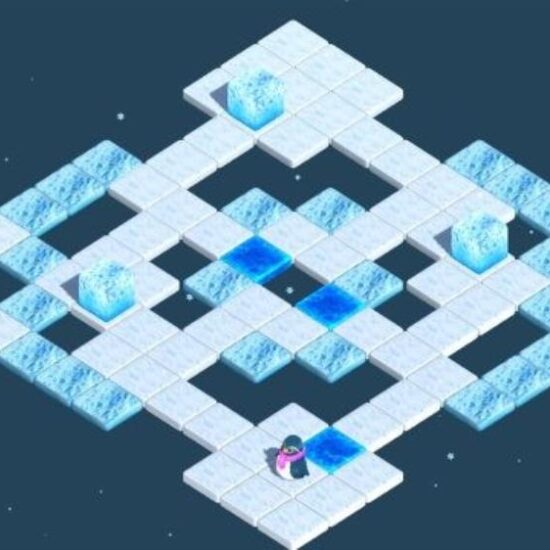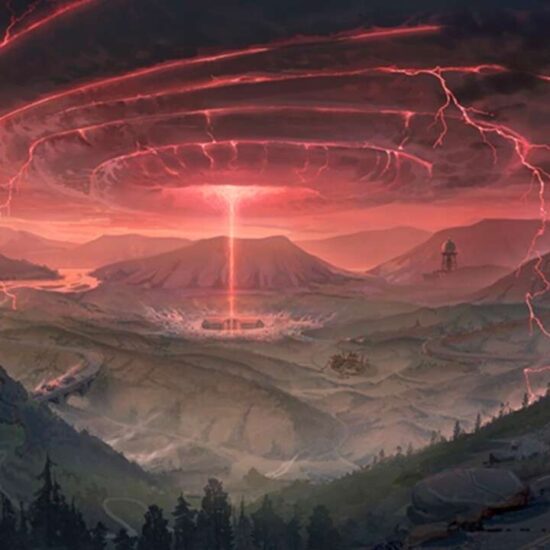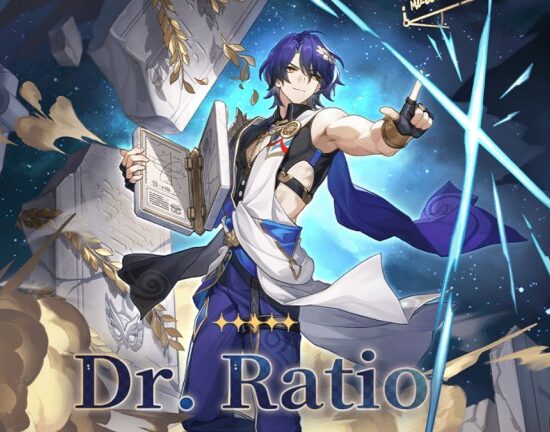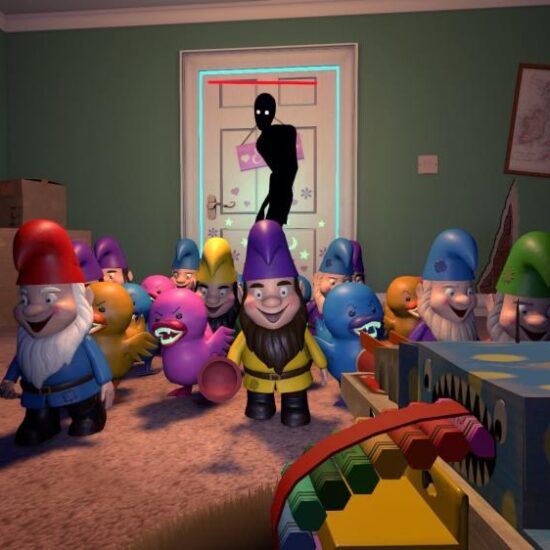
Just about every week brings something new to Destiny 2, whether it’s story beats, new activities, or interesting new combinations of elements that let players devastate each other in the Crucible. Iron Banter is our weekly look at what’s going on in the world of Destiny and a rundown of what’s drawing our attention across the solar system.
Usually, the limbo between Destiny 2 seasons eases a bit as we learn more about the next expansion, and this week, Lightfall details are coming en masse thanks to a brand-new vidoc from Bungie and an earlier preview event GameSpot was invited to. While watching the vidoc at the preview event and a live gameplay demo of the first mission, one thought kept running through my head: We’re seeing the game evolve before our eyes once again.
It’s not drastic on all fronts: Neomuna, the new location in Lightfall, is still what Bungie refers to as a “three-bubble zone,” which puts its size on par with Europa or the Throne World. So it’s not particularly large from what I gathered, and we will likely have seen most of the location by the time Season of the Defiance is over. However, one thing I’ve grown to appreciate about Destiny 2’s more recent locations is just how deep these labyrinthine worlds go.
The surface area of Neomuna might seem relatively small compared to Nessus or the EDZ, but I’m hoping we will see the city setting utilize its height to create more volume in the places you can traverse and explore: a perfect complement to the new Strand subclass exclusive to Lightfall. I’m reminded of a thought I would share with my friends during the early days of Destiny 2 when we would be sparrowing from Trostland past the crumbling buildings, “Don’t you wish we could go inside them?”
We have yet to see all of Neomuna, but we did see a handful of different scenic locations courtesy of B-roll footage provided by Bungie, and it’s genuinely jaw-dropping. I can not get enough of the retro-arcade aesthetic, and although I can’t be certain, I have a feeling that while not every building in Neptune’s hidden metropolis can be explored floor by floor, there will still be plenty of verticality in the geography, and that’s exciting.
Neomuna and the new Lightfall campaign will take the front seat when the expansion goes live, but there are so many other notable additions, including a revamped new-player experience, changes to craftable weapons and the economy, and quality-of-life changes. These aren’t just another experiment mixed in with a smaller expansion release; they’re laying down a foundation for The Final Shape and the eventual next chapter of Destiny after the Light and Dark saga.
The new-player experience being overhauled into Guardian Ranks is potentially the biggest change for Destiny 2’s future. Currently, new players are left to fend for themselves in figuring out how to navigate the game. The biggest question is always, “What do I do? Where do I go?” and it really doesn’t help that if new players join in mid-season for the first time, they don’t even get a chance to gather their bearings in orbit, but are immediately thrust into the seasonal cutscenes and mission without the opportunity to prepare themselves.
Guardian Ranks might not be the perfect solution, but it’s a major step by creating a rank-up system based on mastery and with an aesthetically pleasing UI that’s meant to give players an at-a-glance understanding of how far along their journey they currently are. The Guardian Ranks page replaces the current Triumphs page, where individual triumphs, seals, and titles are stored.
Guardian Ranks are housed under a brand-new Journey tab, which is multi-purpose, housing your equipped titles and tracked challenges, objectives, and triumphs. The ranks range from one through eleven, and will replace the seasonal battle pass rank that would normally be broadcast to other players on your emblem or character. These then offer a somewhat linear path for new players, letting them work their way through different content with some guidance. Could you say screw it and play Gambit all day? Sure, but this way, Guardian Ranks give some structure that will hopefully be easy to follow for everyone.
The mod manager menu UI creates a consistency in how you navigate that I appreciate. The transmog menu is a solid foundation and Bungie has brought that visual look to the mod manager, and it’s a huge improvement. Gone are the days of loading individual menus for every armor piece one by one. Now, you can see every armor mod you have equipped at a glance by their symbols, and there’s also the ability to easily see what champion mods you have equipped, as well as your seasonal artifact upgrades.
The icing on the cake for me is that we’re finally getting a built-in loadout manager, which will be an awesome time-saver. However, the version launching with Lightfall looks as if it has yet to be perfected, as there are some minor issues present. For instance, while equipping a loadout will pull needed items out of your vault, it can’t put items back into your vault if you’re maxed out on inventory space on your character. But that’s a small grievance. Loadouts are something that Destiny has needed for years, especially for console players who don’t have the luxury of alt-tabbing to the third-party Destiny Item Manager website in a browser and were relegated to shuffling their gear between characters on the companion app from their phones. The limit of 10 loadouts should be plenty for a wide variety of activities, but I hope Bungie can increase this over time and as we get more endgame content like new dungeons or raids.
Alongside the Lightfall expansion’s release, Bungie will also debut Season of Defiance, which focuses on the war back on Earth. While we’re messing with the Cloudstriders in Neomuna, trying to face off against a new Disciple of the Witness, we’ll have more content to wade through back on the EDZ. I don’t expect Season of Defiance to push the envelope significantly, since that responsibility will be with Lightfall. Any of Lightfall’s futureproofing that Season of Defiance will benefit from comes from the quality-of-life changes to its core systems, not the delivery of the story content. However, Season of Defiance is still the first prototype for Bungie’s future plans.
Joe Blackburn, Destiny 2’s current game director, put out a massive blog post sharing some promising ideas about future content plans intended to address complaints about seasonal content’s predictability. Normally you’ve got a few really good story beats or cutscenes, and then it’s a pretty rote seasonal activity that you grind out for themed loot and a weekly episodic-style bit of plot development. Some weeks are better than others, but for me, it’s mostly bland after a while. But I’ll also be the first to admit that I’m your classic jaded veteran player suffering from seasonal fatigue.
Most of the changes to Season of Defiance are coming from streamlining the seasonal currency and removing Umbral engrams and the energy material required for Umbrals. This is a big change considering Umbrals were first introduced in Season of Arrivals nearly two and a half years ago. Umbrals were nice because they provided you some opportunity to influence the types of gear you obtained, but managing them alongside prime, bright, and other various engrams could lead to some clutter. Now, Umbrals are being converted into seasonal engrams, which will be tracked through the vendors themselves, similar to how rewards are dished out from Shaxx, Saint-14, Saladin, Zavala, and others today.
That’s a temporary adjustment, though, as Season of the Deep will see the game completely forego the vendor upgrade paradigm. Blackburn mentions that this doesn’t mean we’ll never see a vendor upgrade system again, but rather Bungie is more interested in creating different systems for players to invest in with seasonal content and they use the Shattered Realm from Season of the Lost as a good example of the direction they’re looking to explore for seasonal activities.
Destiny 2: Lightfall seems likely to come out with its best foot forward, though based on The Witch Queen’s success, that was never a concern. The campaign will be something I will enjoy, and the first couple of months will be the most engaged I will be with the game since Witch Queen’s launch. My concern then lies with what comes after launch. The more you play Destiny, the more you’ve seen it all, and it’s rare that a seasonal activity comes around that remains engaging for long. Standouts like the Shattered Throne dungeon or the Expunge missions were novel pieces of content that stood head and shoulders above the relatively mundane six-player matchmade seasonal activity. The focus on experimenting in the future for activity rewards and gear farming, seem promising, but I’m far more curious about Bungie’s efforts to refresh the seasonal model or the ritual activities like Strikes.
I may sound pessimistic sometimes, but I don’t mind the seasonal model all the time. It’s gotten better, particularly from a story perspective, than earlier expansions around the Forsaken era. I appreciate the air of mystery returning to the story beats as opposed to the full calendar in old seasons where everything was datamined, and nothing came as a surprise. Bungie’s efforts on preserving the novelty and surprise of the past few releases are noted.
Destiny 2: Lightfall comes out February 28, but there’s already so much more to discuss that it’s difficult to figure out where to start. Hilariously, it’s an issue not unlike what most new players have when it comes to playing this game: I have a hard time trying to parse through all the big topics to dissect as Bungie drops thousands and thousands of words on what’s coming. This is a fun problem, though: For a game that has been questioned for its drought of content from time to time, it’s nice to see Destiny 2 keep growing and set an optimistic foundation for the future.
The products discussed here were independently chosen by our editors.
GameSpot may get a share of the revenue if you buy anything featured on our site.














